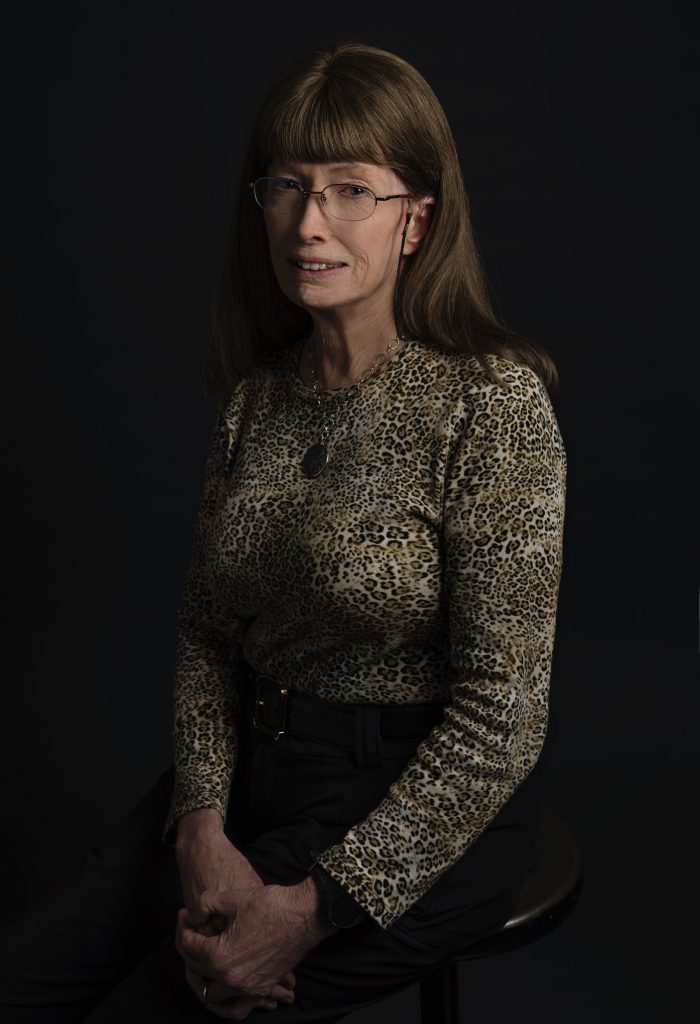Lynn Conway talks career, LGBT advocacy
Lynn Conway talks career, LGBT advocacy

Lynn Conway, an internationally renowned research engineer, former professor and transgender advocate, visited Syracuse University on Tuesday as the second speaker in SU’s University Lecture Series. Conway sat down with The NewsHouse to discuss her career in computer science and her difficulties coming out.
So you’re here at Syracuse University, but you have a wonderful background especially in engineering and technology. What do you want people to know about your achievements professionally?
Lynn Conway: Well I think I’d want people to know about the history of technology. All of the stuff that we’ve accumulated over the years we’ve been working. Overall I think the message of my own contributions is an interested curiosity in the evolution of the history of it, and seeing opportunities that are kind of there for the taking.
Back in the 1960s, you were fired from IBM (International Business Machines) when you revealed that you were transitioning genders. What do you remember from that time of your life?
LC: That was a very tumultuous period in my life. It turned out that the executive committee at IBM, particularly T.J. Watson Jr, decided to fire me. So I had the honor of getting fired by T.J. Watson Jr. himself. That meant I was kind of thrown out on my own, without financial security, but looking back, it was one of the best things that ever happened to me. It taught me to learn, work hard, plan carefully, network properly, do the right things, to find the right kind of health to transition at that time. So I don’t really have any grudge against IBM actually, I think it was kind of a strange kind of behavior that caused that much of a ruckus with the executive committee, but I think things worked out for me in the end.
After you managed to socially transition, you went right back into that field again, that kind of cutting-edge computer technology. What was it like working with all those advancements while hiding part of yourself?
LC: At the time, I didn’t really think of it as hiding part of myself because I was emerging into myself. All I felt was fear that my past would be discovered. It would very much be like being an immigrant with some unusual background, you would really not be wanted in a country you had wandered into and you’d cover that. A lot of people cover in various ways, but yeah there’s a burden for me because of that past. So think of someone trying to get a life, as best as I could, and I was lucky that programming was really taking off for women, especially with the boom in large-scale programming and chip development.
What was it like working in that field of high-end chip development?
LC: Back then, the chips that went into computers had maybe a few thousand transistors, and they were designed by imprinting patterns onto silicon. They’d have huge rooms with silicon on the walls and they’d cut patterns out of them – it was artwork. They’d work out chips a few thousand transistors at a time. So what I did was I developed a set of rules, basically, that would let the computer do the artwork for the chips itself. And that caused the explosion of chip design in Silicon Valley, it was very exciting. In many ways, my life was not in any way about my past, except [for] my secret. I became a research leader there, a manager there, worked with great people. The transition was only there because I had to worry about covering.
In 1999 you decided to retire, and you eventually came out online. What was that like, and how has your journey been since then?
LC: Well, it turned out, that in the late ’90s, the work I’d done [at IBM, before Conway transitioned] was starting to be explored for the things I’d invented there. I wanted to get ahead of that, so I started quietly coming out over the emerging Internet and telling a little bit about my story. But then I realized that I could use this platform to address transgender issues. And so I started building this website, and it kind of took off. I interacted with a lot of people, and I saw success stories from people around the world.
And in turn, what do you feel when someone tells you that you’ve read your work and been inspired by it?
LC: It’s very rewarding. I can’t help but think that in my own life I’ve been inspired by works from other people, and I maintain key quotes of people who impacted me, I have tables of these. And when people tell me my words inspire them I can’t help but feel that I am leaving something behind for them to keep.





